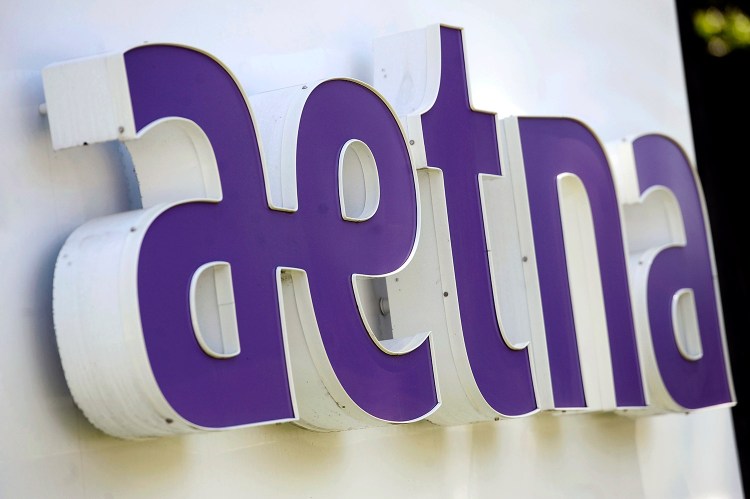A federal judge has prohibited the merger of two health insurance giants, Aetna and Humana, upholding the Justice Department’s decision that the $37 billion deal would hurt competition and raise prices for consumers.
“The court is unpersuaded that the efficiencies generated by the merger will be sufficient to mitigate the anticompetitive effects for consumers in the challenged markets,” U.S. District Judge John Bates wrote in his 158-page opinion.
In July, the Justice Department sued to block the merger, arguing that it would reduce competition in the Medicare Advantage market and in some of the exchanges set up under the Affordable Care Act. Medicare Advantage plans are Medicare health plans offered by private insurers.
“We are reviewing the opinion now and giving serious consideration to an appeal, after putting forward a compelling case,” Aetna spokesman T.J. Crawford said. The companies’ merger agreement, which has already been extended twice, is due to expire Feb. 15.
COMPETITION WOULD BE DECREASED
Bates wrote in his opinion that the proposed merger would have decreased competition substantially in the Medicare Advantage market in 364 counties. Aetna and Humana had proposed that divesting some of that business to a smaller insurer, Molina, could have addressed those concerns, but the judge did not agree.
The merger was also deemed to lessen competition in the exchanges set up by the Affordable Care Act in three Florida counties. Aetna withdrew from the majority of the exchanges that it had participated in this year, citing financial losses. The judge, however, wrote that Aetna withdrew from 17 counties highlighted in the case “specifically to evade judicial scrutiny of the merger.”
In a statement, Deputy Assistant Attorney General Brent Snyder called the decision a victory for consumers and said taxpayers and customers would save up to half-a-billion dollars each year.
“This merger would have stifled competition and led to higher prices and lower-quality health insurance,” Snyder said.
OTHER BIDDERS COULD NOW EMERGE
In a research note, Ana Gupte, an analyst at Leerink Partners, wrote that she had expected the deal to have a one in three chance of closing. She said other bidders could now emerge for Humana.
In a separate case, Anthem and Cigna have proposed a $54 billion merger that was also blocked by the Justice Department and appealed. The decision in that case is still pending, but Gupte said that deal is also expected to be blocked.
Matthew Cantor, a partner at Constantine Cannon, an antitrust law firm, said the decision was based on a thorough analysis by the judge and argued that an appeal would likely be difficult from a legal standpoint. But he noted that a wild card could be the role of the Trump administration, which is currently pressing to replace the Affordable Care Act and will be negotiating with insurers who sell plans in the marketplaces and in whatever replaces them.
“You have a White House – at least when they were in the president-elect phase – that has seemingly been receptive to having discussions with executives whose mergers are under review,” Cantor said. “It could be that the independence of the Justice Department is cast aside here, in order to create a settlement which would benefit, from a political standpoint, the Trump administration. If they, in fact, revise the ACA so drastically and they can get public statements from these insurers – these large insurers – that they support the transition.”
MERGERS EXPECTED TO CONTINUE
Dan Mendelson, president of Avalere Health, said that whether on appeal or in new deals, he expects insurers to continue to make acquisitions or attempt mergers. He said it’s possible that insurers could turn to data and analytics firms.
“Health plans have been and will continue to be acquisitive,” Mendelson said. He pointed out that the largest health insurer, UnitedHealth Group, “has already scaled up to a very large degree, so the other companies are interested in following suit.”
A request for comment from Humana was not immediately answered.
The stock prices of both companies fell on the news.
The decision was applauded by advocates for doctors and patients.
“The court ruling halts Aetna’s bid to become the nation’s largest seller of Medicare Advantage plans and preserves the benefits of health insurer competition for a vulnerable population of seniors,” Andrew Gurman, president of the American Medical Association, said in a statement.
Gurman said the decision sets a precedent by determining that the Medicare Advantage market does not compete with traditional Medicare.
“Today’s ruling is a decisive victory for jobs, consumers, and health care. Mega mergers like the proposed consolidation of Aetna and Humana raise prices, lower health care quality – and kill jobs,” Sen. Richard Blumenthal, D-Ct., said in a statement.
Send questions/comments to the editors.



Success. Please wait for the page to reload. If the page does not reload within 5 seconds, please refresh the page.
Enter your email and password to access comments.
Hi, to comment on stories you must . This profile is in addition to your subscription and website login.
Already have a commenting profile? .
Invalid username/password.
Please check your email to confirm and complete your registration.
Only subscribers are eligible to post comments. Please subscribe or login first for digital access. Here’s why.
Use the form below to reset your password. When you've submitted your account email, we will send an email with a reset code.